LAW 100, Semester 1: Statutory Interpretation of Banned Drugs Act
VerifiedAdded on 2022/09/07
|5
|1027
|73
Homework Assignment
AI Summary
This assignment analyzes a case scenario under the Banned Recreational Drugs Act 2004 (Qld), focusing on statutory interpretation. The analysis centers on whether an individual, Nic, would be considered guilty of an offense under section 10 of the Act, which outlaws recreational drugs including 'SomaHeaven'. The assignment emphasizes the role of judges in interpreting statutes, referencing the Acts Interpretation Act 1901 (Cth), and the importance of considering the intention of the Act. It discusses the golden rule, mischief rule, and literal rule of statutory interpretation, providing examples like Adler v George, Corkery v Carpenter, and Fisher v Bell. The application section interprets section 10, considering the Minister for Justice's statement and the absence of a definition for 'recreational drug'. The analysis concludes that, based on the interpretation of the Act using these rules, Nic would likely be found guilty. The assignment includes a list of references including the relevant legislation and case laws.
1 out of 5
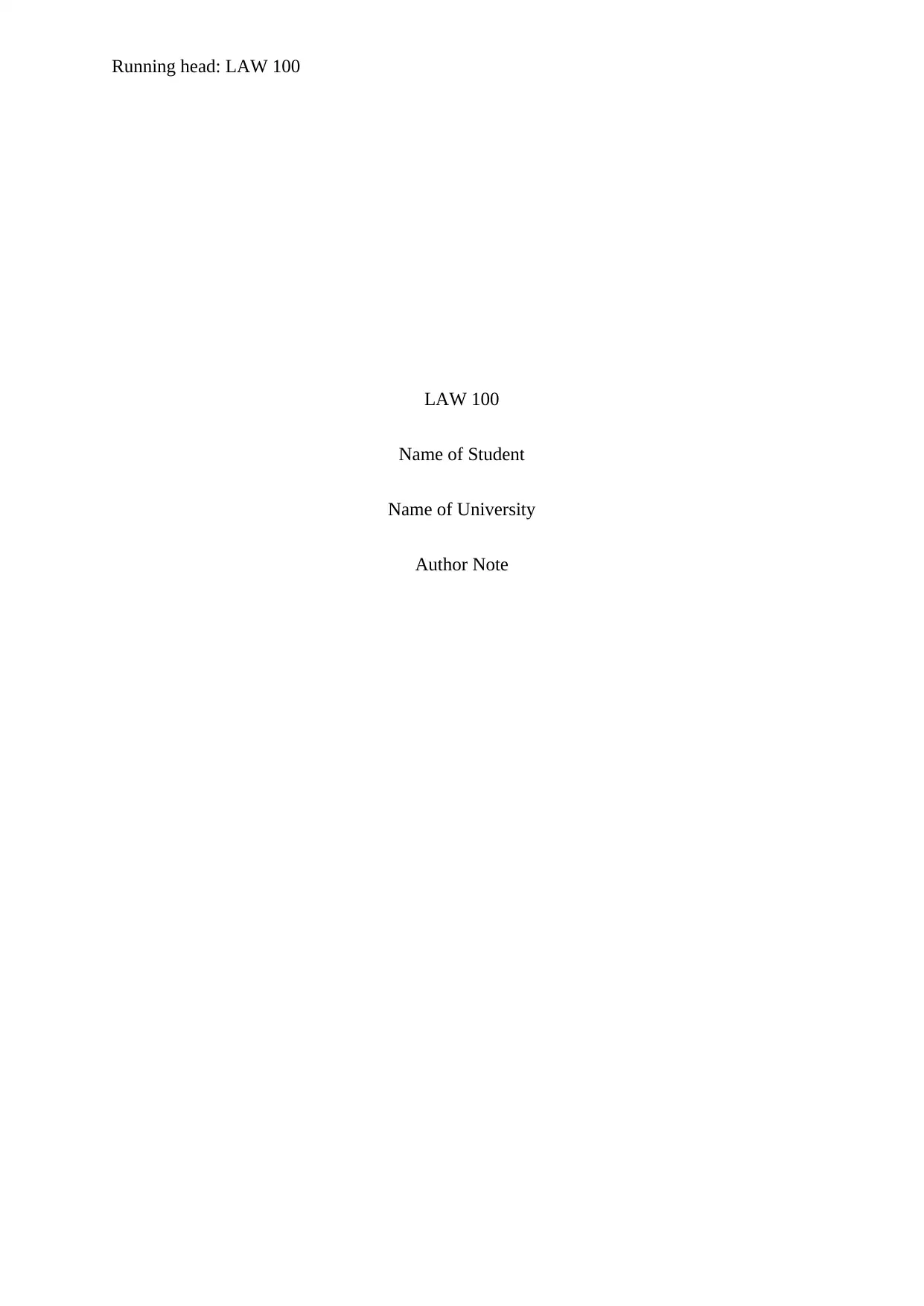
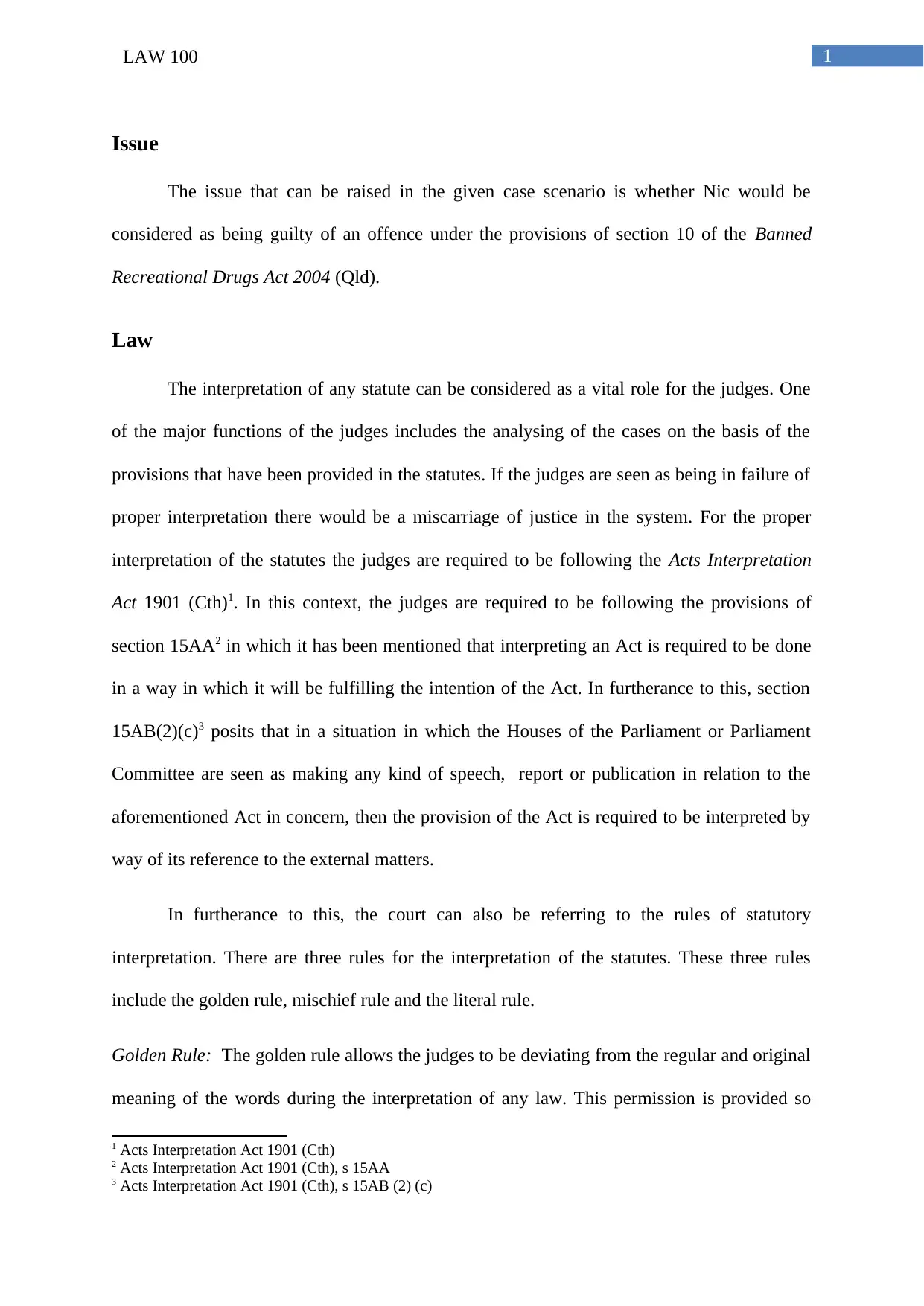
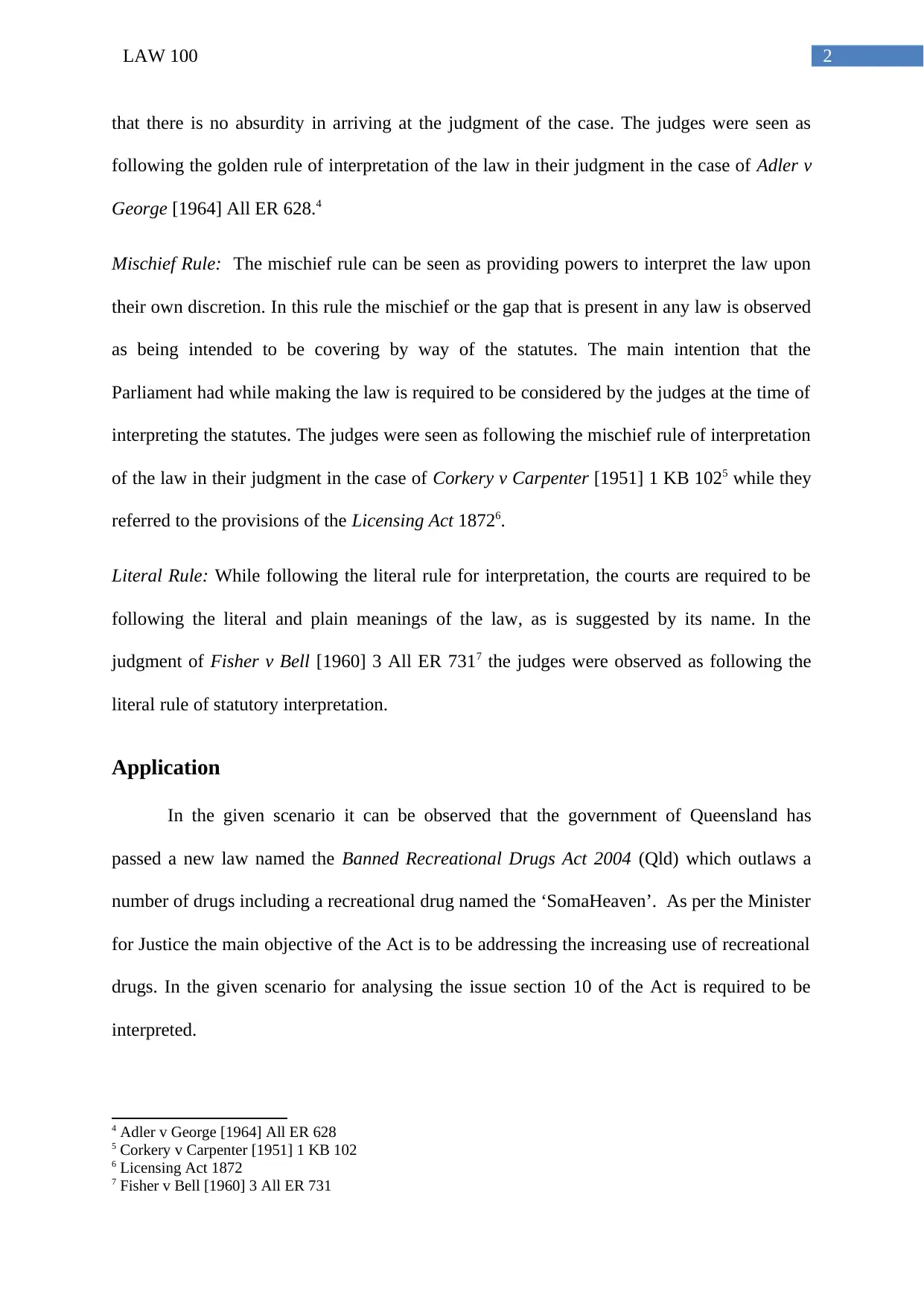

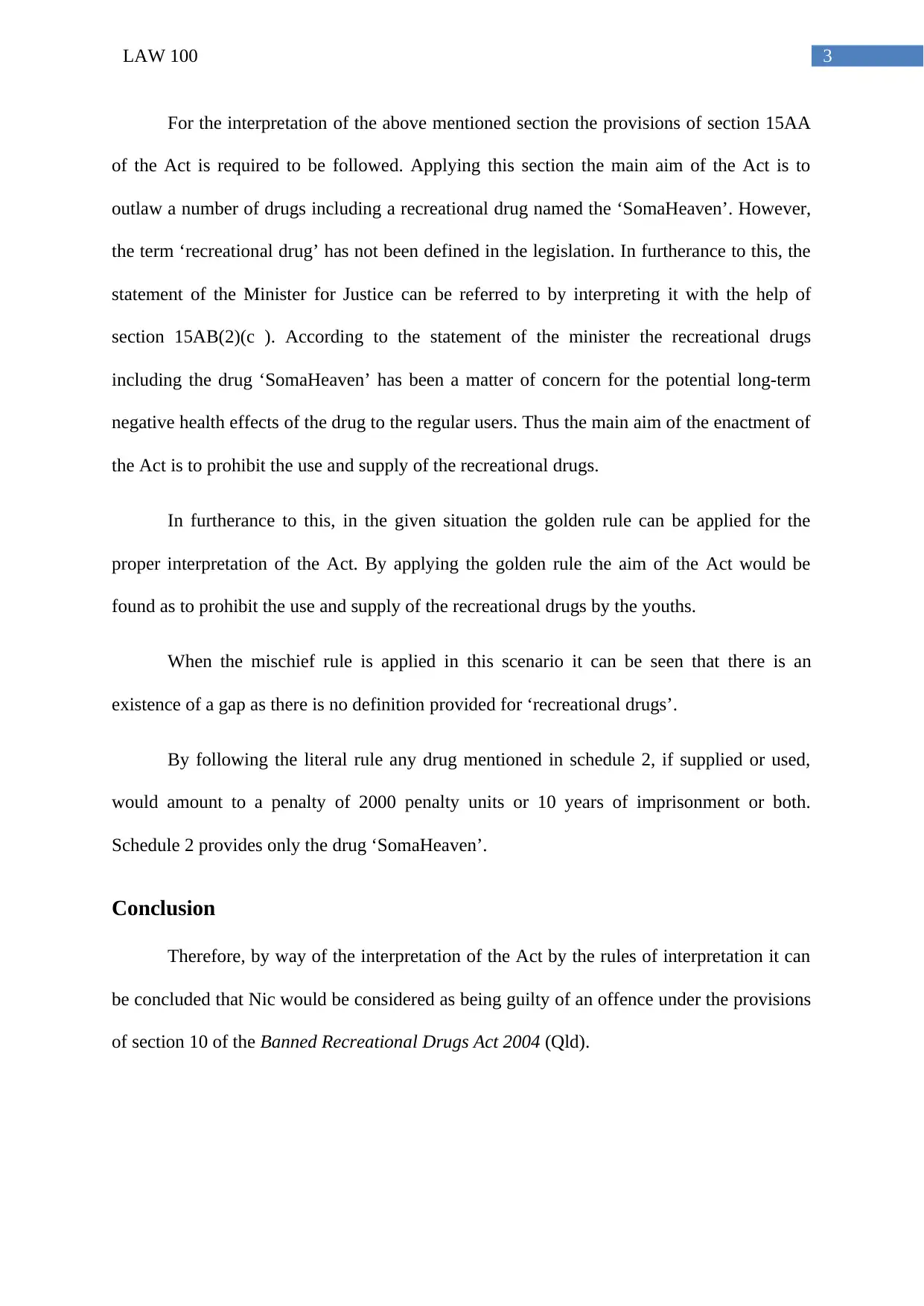
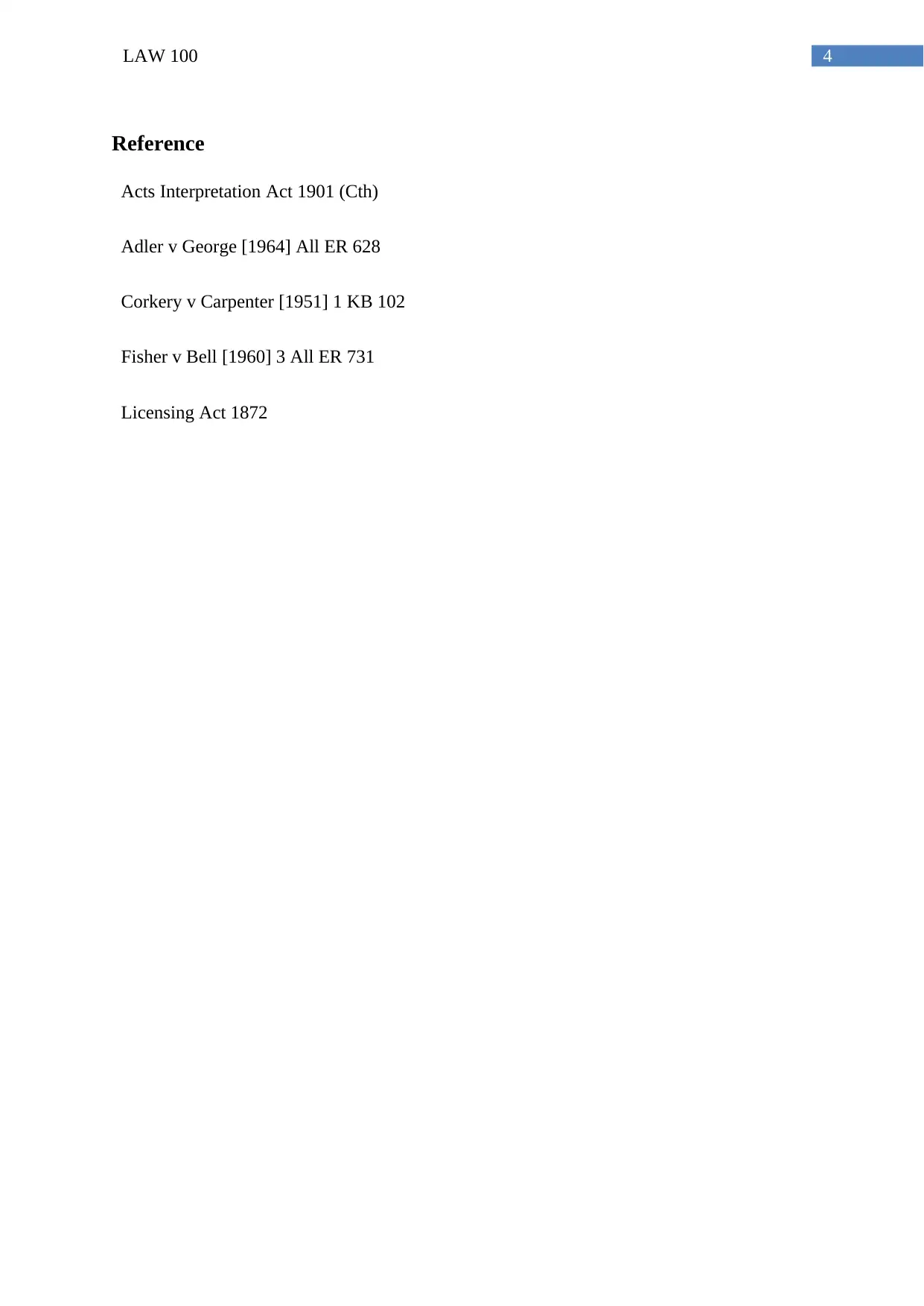






![[object Object]](/_next/static/media/star-bottom.7253800d.svg)